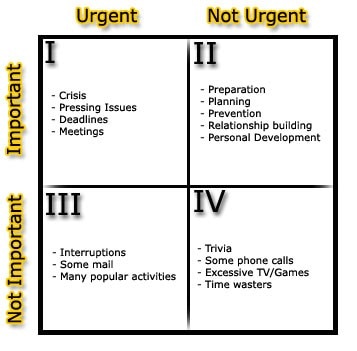|
I am hearing many concerns from my clients about the job market during these uncertain times. In response, here are some tips to help you navigate this strange time:
✓ Determine your values, prioritize your needs, and describe your goals. Then make a plan and execute it. ✓ Stop listening to doomsayers and watching negative media. There are still many good jobs out there. ✓ Identify your top skills, strengths, and attributes and create an impactful way to articulate your value to a potential employer. ✓ Leverage your social media platforms such as LinkedIn. Bolster your social and professional capital which is necessary for overall career health and employability. ✓ Take one step each day in your job search - apply for a position, learn something new, reach out to a new contact, or ask someone for feedback. One of the secrets to a successful job search is consistency so "keep the ball rolling", even if it is just a little each day. ✓ Provide yourself space each day to just breathe. Review your goals, evaluate your progress, identify any challenges, refine your job search strategy, and celebrate how well you are doing during this global crisis. Most of all, remember that you've got this! #careeradvice #jobsearch #resume #careercoach
0 Comments
I just love this quote by Mandy - “Embrace the uncertainty. Enjoy the beauty of becoming. When nothing is certain, anything is possible”.
These feel like crazy and uncertain times to be job searching. However, know that the job market has always had an element of uncertainty, (even prior to Covid-19) and there are many jobs being created and available at THIS time. The best way to meet the uncertainty is to TAKE ACTION. ►Avoid people and news sites focused on bad news about the job market ►Identify your skills, strengths, and attributes ►Determine how to articulate them to a potential employer ►Consider your value and contribution to an organization ►Refine your resume, LinkedIn profile and networking pitch ►Think ahead and continue to stay current in your industry through networking and professional development opportunities ►Ask for help ►Just take ONE step each day toward your job search or hashtag#career transition, (complete an application, follow up on a lead, make a new contact, begin an online course, etc.) A successful job search demands that we get comfortable with uncertainty, embrace change, and trust the wait. We can do this! #careercoach #resumewriter #careerexpert #jobsearch #careeradvice Writing a thank you note after the #interview is a key part of the interview process. No interview is complete without it and many people don’t realize is that the quality of your thank you note can be a huge influencer in whether or not you are #hired.
Most people will write a generic “thank you for taking the time to interview me, and it was great to meet you and see your company”, but this states the obvious and is really boring. Instead, turn your follow up into a powerful opportunity to tell an #employer exactly why you are the right person for the #job. Think outside the box! Review what you learned about the company, what they are looking for in you as a new hire and the answers to the questions that you asked. Then draft a note that hooks them in and tells them WHY they should hire YOU. Be creative! Consider sending your thank you in video format, in an engaging e-card, or infographic. If sending an email, let your personality and voice shine through. And remember to thank the inter-viewer(s) for their time and consideration. Here is an example written by my client Joe: Hello Mary and Dan, It was such a pleasure to meet you both yesterday, learn more about your company and the role of Senior Marketing Analyst. Going home, I gave thought to our discussion about what gives your company a competitive advantage in your industry. My mind has been rapid-firing and I am excited to apply my expert understanding of big data, skill in translating trends, and understanding of consumer behaviour to continue growing that competitive advantage through laser-sharp recommendations that I know will drive key business decisions and positively impact your bottom line. Furthermore, in learning more about your philanthropic projects that support small businesses in low-income areas, I know that I would be a proud ambassador of your brand. Thank you again for your time and consideration and I look forward to the opportunity to add value to your team. Best Regards, Joe What stands out here is Joe's passion and personality. The key is to let your voice shine through....Oh, and have fun! There is a Japanese proverb that says:
I love communication, especially playing with words. This is why I am so passionate about working with people to develop resume, bios, social media profiles and marketing content. It gives me the opportunity to help people shine by doing what I love.
Are you applying for jobs that you know you would rock at but just not getting any response or call-backs? Do you wonder what happened to your application when you met all of the requirements for the job? hen applying for jobs, your resume needs to be attractive to recruiters and hiring authorities in addition to standing up to the Application Tracking Systems. Wishing you a successful week! Lysa Have you ever heard that your network is your net worth? It is no secret that that networking is an integral part of any job search, and is an essential activity for long term employability. However, if you are an introvert like me, networking can be an uncomfortable experience. Yet no matter what your personality type or communication style is, networking can be fun.
I never thought that I would be a careerpreneur. As a Career Strategist and Employment Coach in the current marketplace, my career is built around securing short to mid-range contracts and projects instead of finding secure, long term work.
Congratulations. So you aced that last interview with Company X and the job offer has come through. You have until the end of the week to accept or decline the offer, but Company Y is the job that you really have your sights set on and your second interview with them is not until the following Monday. Yikes! Multiple job offers seem like a good problem to have, but they can cause much angst and a few sleepless nights! All of a sudden you are in a high stakes game where you run the risk of losing both opportunities if you make the wrong move. Walking this line requires finesse and below are a few tips to keep you confidently in the game and positioned well.
If you reach your deadline with Company X and there is still no offer from Company Y, then you have a tough decision to make based on 3 options: (1) Accept the offer from Company X and let go of Company Y, (2) Accept the offer from Company X and then rescind if Company Y comes through, (3) Decline Company X and hope that Company Y comes through. Which way to go is a personal decision and it must be right for you, your family and your career. Often for when making these tough decisions, the best answer is found in your “gut”, by sitting with each option and identifying which one feels most right. One thing to consider when declining an offer is that industries are small and your reputation is key for long professional success. It is paramount to always try and keep relationships in good standing and not burn any bridges. One way to do this is to suggest or put forward someone else that you may know who could be good for the role you have turned down. Lastly in keeping with transparent communication, honesty is still the best policy. If there is no other way to approach it then the right thing to do is to pick up the phone and openly discuss your situation with both parties. Company X may not appreciate being kept at arm’s length until Company Y comes through, but they will most likely appreciate your integrity and your courage in not keeping them in the dark. Wishing you a successful week! Lysa Lysa Appleton is a Career Consultant, Employment Strategist and awesome Resume Artist with 10+ years of experience helping professionals and industry leaders to secure work they love across Canada and the United States. “Defer no time; delays have dangerous ends”. (William Shakespeare)
|










 RSS Feed
RSS Feed